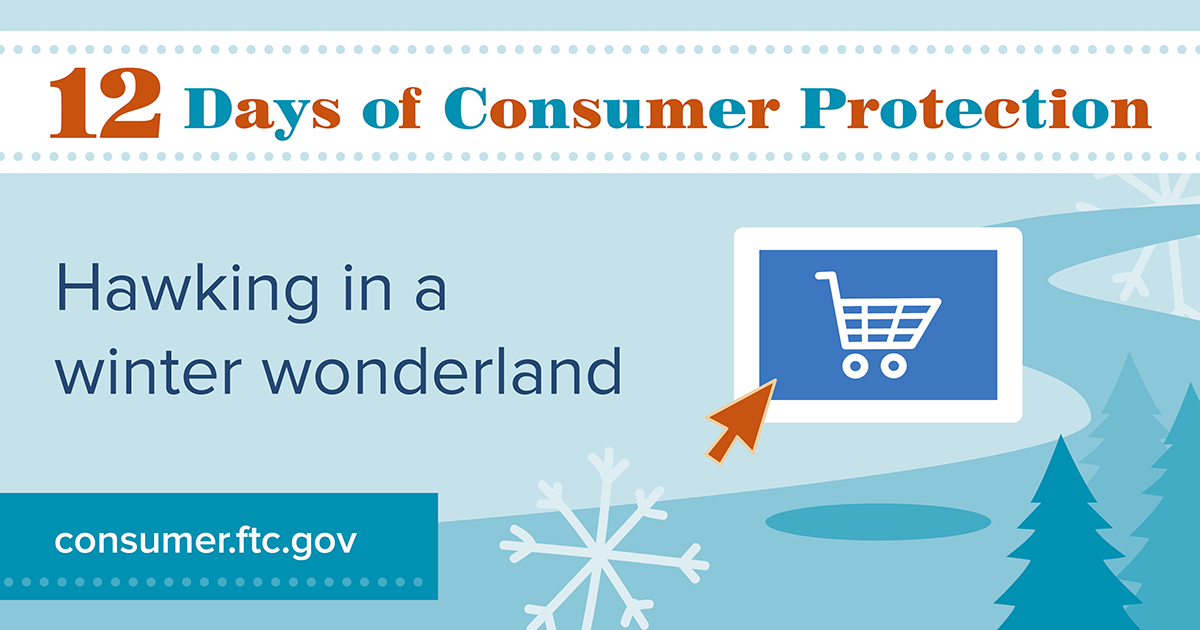On this 2nd day of Consumer Protection, it’s all about online shopping. Because that’s what we can do this year, right? (OK, it’s a lot of what we do any year.)
If you’re spending some of your hard-earned money online, make sure you know where it’s going. Because it’s pretty easy for scammers to put up a fake website that looks a lot like a real one. A scam website may show up in your search results, or scammers may send you a phishing email that looks like it came from a company you trust, but actually takes you to a rip-off site. They’ll be happy to take your money and leave you with nothing. So:
-
Instead of clicking on a link, say in an email, type in the store’s URL yourself, so you know where you’re headed.
-
Only pay on sites with URLs that starts with https. That ‘s’ means your transaction is encrypted…but scammers know how to encrypt, too. So don’t believe that a site is the real deal just because the site uses encryption.
-
Pay by credit card. It gives you way more protections if something goes wrong.
-
Check out more about how to shop safely online.
And if you spot a scammy site or you don’t get what you ordered, tell the FTC at ReportFraud.ftc.gov.


In reply to "Pay by credit card. It gives by Kevin
This article tells more about your rights when you pay with a credit card. For example, if you're billed for merchandise you didn't get, or returned, you can dispute that with your credit card company. Check with other payment methods to see what they say about your options and rights.
In reply to "Pay by credit card. It gives by Kevin